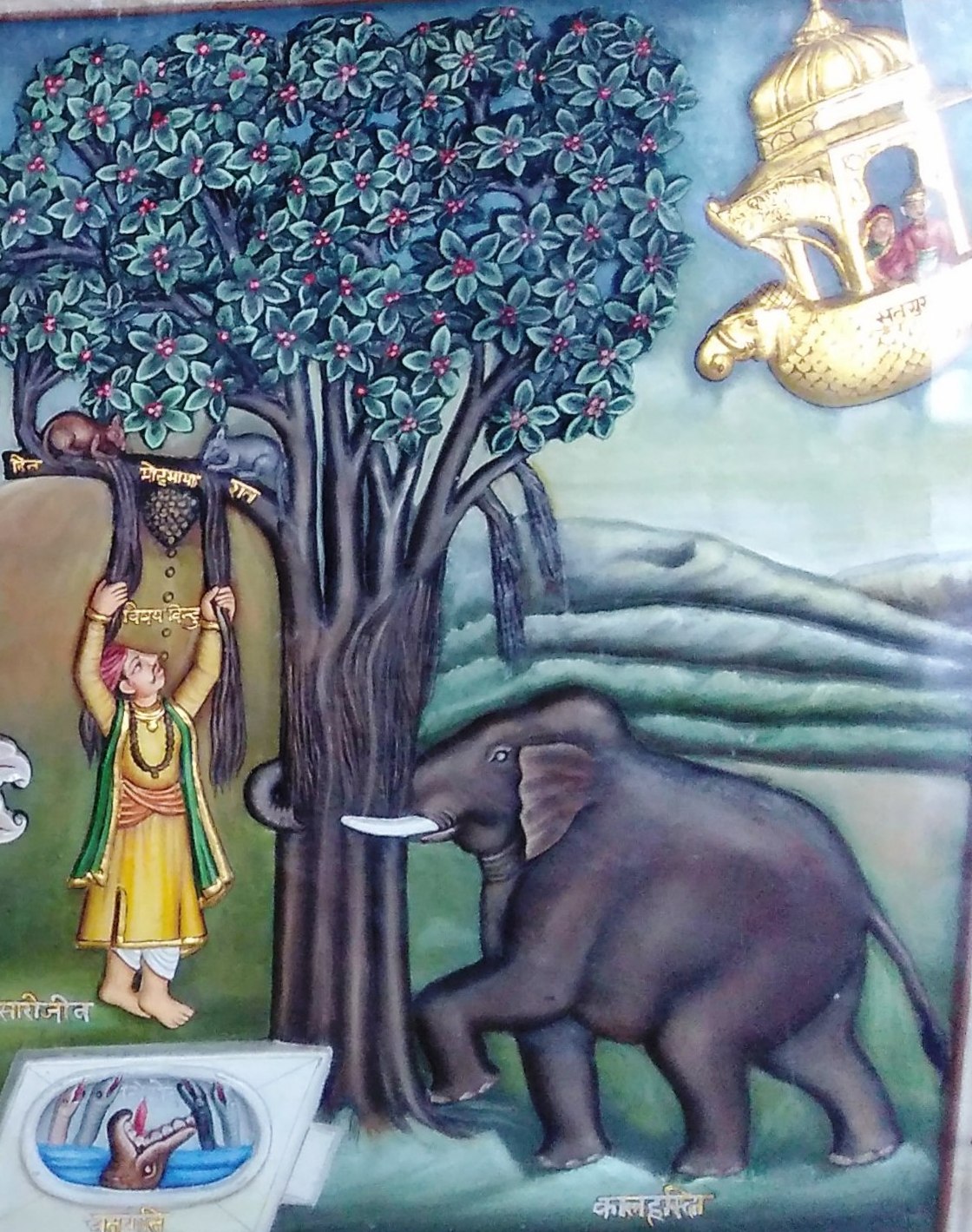Saṃsāra (Jainism) on:
[Wikipedia]
[Google]
[Amazon]
 ''Saṃsāra'' (transmigration) in
''Saṃsāra'' (transmigration) in
 ''Saṃsāra'' (transmigration) in
''Saṃsāra'' (transmigration) in Jain philosophy
Jain philosophy refers to the ancient Indian philosophical system found in Jainism. One of the main features of Jain philosophy is its dualistic metaphysics, which holds that there are two distinct categories of existence, the living, consciou ...
, refers to the worldly life characterized by continuous rebirths and reincarnation
Reincarnation, also known as rebirth or transmigration, is the philosophical or religious concept that the non-physical essence of a living being begins a new life in a different physical form or body after biological death. Resurrection is ...
s in various realms of existence. is described as mundane existence, a life full of suffering and misery, and hence it is considered undesirable and worth renunciation
Renunciation (or renouncing) is the act of rejecting something, especially if it is something that the renunciant has previously enjoyed or endorsed.
In religion, renunciation often indicates an abandonment of pursuit of material comforts, in t ...
. The ''Saṃsāra'' is without any beginning, and the soul
In many religious and philosophical traditions, there is a belief that a soul is "the immaterial aspect or essence of a human being".
Etymology
The Modern English noun '' soul'' is derived from Old English ''sāwol, sāwel''. The earliest atte ...
finds itself in bondage with its karma
Karma (; sa, कर्म}, ; pi, kamma, italic=yes) in Sanskrit means an action, work, or deed, and its effect or consequences. In Indian religions, the term more specifically refers to a principle of cause and effect, often descriptivel ...
since the beginning-less time. ''Moksha
''Moksha'' (; sa, मोक्ष, '), also called ''vimoksha'', ''vimukti'' and ''mukti'', is a term in Hinduism, Buddhism, Jainism and Sikhism for various forms of emancipation, enlightenment, liberation, and release. In its soteriologic ...
'' is the only way to be liberated from ''saṃsāra''.
Influx of karmas (''asrava'')
According to the Jain text ''Tattvartha Sutra
''Tattvārthasūtra'', meaning "On the Nature '' ''artha">nowiki/>''artha''.html" ;"title="artha.html" ;"title="nowiki/>''artha">nowiki/>''artha''">artha.html" ;"title="nowiki/>''artha">nowiki/>''artha''of Reality 'tattva'' (also known as ...
'':
Activities that lead to the influx of karmas (''asrava
''Asrava'' (''āsrava'' "influx") is one of the '' tattva'' or the fundamental reality of the world as per the Jain philosophy. It refers to the influence of body and mind causing the soul to generate karma.
The karmic process in Jainism is ...
'') which extends transmigration are:
*Five senses
*Four passions ('' kasāya'')
**Anger
**Ego
**Deceit
**Greed
*The non-observance of the five vows
*Non-observance of the twenty-five activities like Righteousness
;''Saṃsāra bhavanā''
Jain texts prescribe meditation on twelve forms of reflection (''bhāvanā'') for those who wish to stop the above described ''asrava''. One such reflection is ''Saṃsāra bhavanā''.
It has been described in one of the Jain text, ''Sarvārthasiddhi
''Sarvārthasiddhi'' is a famous Jain text authored by '' Ācārya Pujyapada''. It is the oldest extan commentary on ''Ācārya Umaswami's Tattvārthasūtra'' (another famous Jain text). Traditionally though, the oldest commentary on the Tatt ...
'' as:
Champat Rai Jain
Champat Rai Jain (6 August 1867–2 June 1942) was a Digambara Jain born in Delhi and who studied and practised law in England. He became an influential Jainism scholar and comparative religion writer between 1910s and 1930s who translated and ...
, a 20th-century Jain writer, in his book ''The Practical Dharma'', wrote:
See also
* Jain cosmologyNotes
References
* * * * Jain philosophical concepts {{Jainism-stub